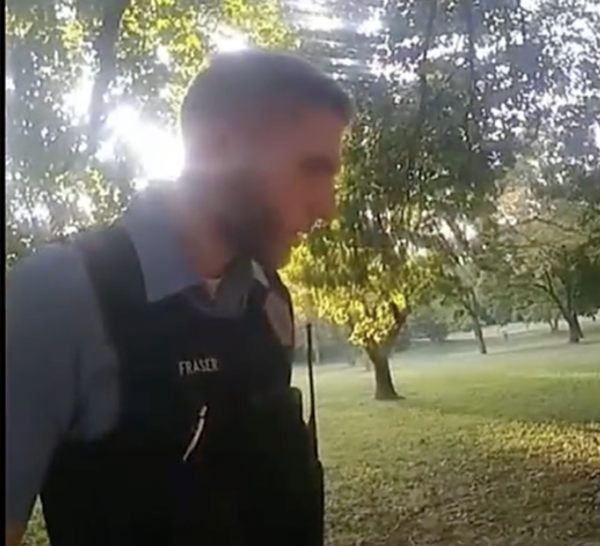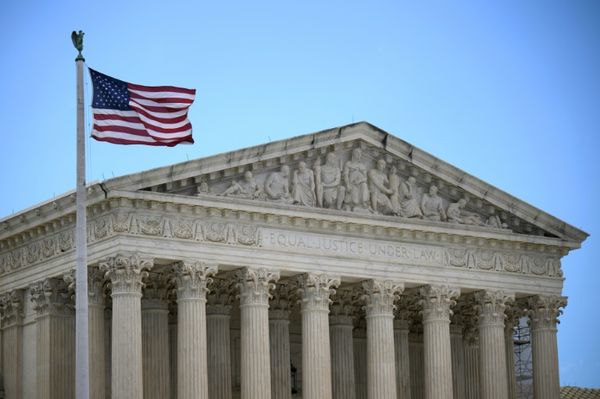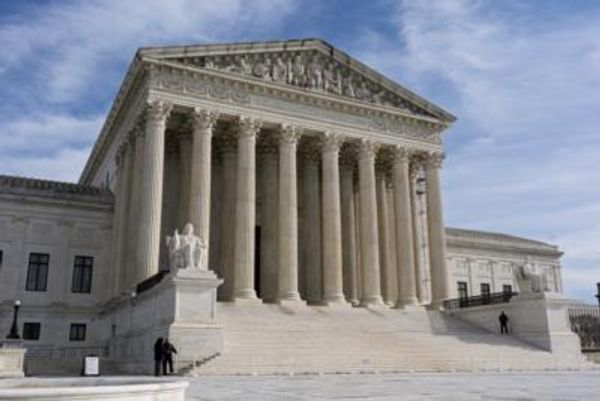
Welcome to Foreign Policy’s Security Brief.
What’s on tap today: U.S. President Donald Trump derails foreign aid by ending stimulus talks, the only vice presidential debate of the election veers into foreign policy, and the U.S. ambassador to the United Kingdom is in hot water again.
If you would like to receive Security Brief in your inbox every Thursday, please sign up here.
Trump’s Stimulus Move Threatens Foreign Aid
U.S. President Donald Trump’s abrupt decision to end talks on a fresh economic stimulus package won’t just have implications at home. It is also fueling concerns that the United States will surrender influence on the world stage. Trump, heavily medicated for COVID-19, changed his position on the talks for the third time on Tuesday. The president is now advocating a piecemeal stimulus package with a new round of checks for Americans and a bailout for the flagging airline industry.
But the move leaves significant doubt about the future of the U.S. global response to the coronavirus pandemic—both in developing and distributing a vaccine and dealing with knock-on effects of the pandemic, such as increased hunger and poverty around the world.
As late as this summer, congressional Democrats and Republicans were pushing for the stimulus package to include at least $3 billion for Gavi, the international vaccine alliance. The HEROES Act championed by House Democrats took those plans a step further, calling for more than $9 billion in foreign aid funding, including $3.5 billion for the Global Fund to Fight AIDS, Tuberculosis, and Malaria; another $1 billion for emergency AIDS relief; and $750 million for the U.N. World Food Programme (WFP).
With Trump appearing to call off the stimulus talks—the president initially said that confirming Supreme Court nominee Amy Coney Barrett was the priority instead—the aid funding is now in limbo.
Humanitarian groups warn that the cost of inaction is high. The WFP indicated in April that the pandemic could lead to a surge in the number of people around the world facing acute hunger—from 130 million to 265 million. The World Bank estimated this week that the pandemic has put as many as 114 million people into extreme poverty, a figure that could rise in 2021.
Despite these dire warnings, the Trump administration has pared back its efforts to battle the pandemic abroad. In September, the U.S. Agency for International Development shut down its coronavirus task force, spurring fears about coordination of the agency’s efforts, which have included distributing aid and ventilators to U.S. partners and allies.
What We’re Watching
Contagion hits top military brass. Gen. Gary Thomas, the U.S. Marine Corps’ number 2 general, tested positive for COVID-19 on Wednesday. Thomas is one of nearly a dozen top U.S. military officers in the Joint Chiefs of Staff now in quarantine after a senior Coast Guard admiral tested positive earlier this week. Most of the Joint Chiefs of Staff, including the chairman Mike Milley, attended a White House event to honor Gold Star families on Sept. 27, raising concerns that it may have been a superspreader event.
Ankara’s away? Unconfirmed reports that Turkey trained its Russian-made S-400 air defense system on Greek F-16 fighter jets have sparked a renewed push in Congress for the Trump administration to slap sanctions on its NATO ally. Several officials familiar with the matter told Foreign Policy that the reports were false, but lawmakers on Capitol Hill are demanding answers.
In a letter to Secretary of State Mike Pompeo on Wednesday, Sens. Chris Van Hollen and James Lankford called for sanctions on Ankara mandated by the delivery of the $2.5 billion Russian system last year. The S-400 has become one of the biggest—but by no means only—thorn in the side of Turkey’s relationship with Washington and other NATO members.
Clash of the vice-Titans. Vice President Mike Pence and Sen. Kamala Harris clashed over foreign policy and other issues during the only vice-presidential debate of the election on Wednesday, Foreign Policy’s Michael Hirsh reports. Unlike the “mudslinging madhouse” that was the first Trump-Biden debate, Harris and Pence both engaged on policy issues—albeit while rarely directly answering a question from the moderator.
Neither candidate explicitly answered whether they saw China as a competitor or outright adversary. Pence defended the Trump administration’s foreign-policy record, including the strikes that killed Islamic State leader Abu Bakr al-Baghdadi and top Iranian military commander Qassem Suleimani. They also discussed climate change, with Pence saying the administration “listen[s] to the science”—though it has blocked government scientists’ congressional testimonies on the issue.
On the company dime. U.S. Ambassador to the United Kingdom Woody Johnson, a billionaire Trump donor and the owner of the New York Jets, is again in hot water for a spending binge at the president’s Turnberry golf course in Scotland on the taxpayer’s dime, according to receipts reviewed by The Scotsman. Johnson had already ruffled feathers among U.S. diplomats by forcing out career officials and was investigated by the State Department inspector general for making sexist and racist comments.
Movers and Shakers
Race for top WTO spot. The next chief of the World Trade Organization (WTO) has been narrowed down to two candidates: Nigeria’s Ngozi Okonjo-Iweala and South Korea’s Yoo Myung-hee, Bloomberg reports. Whoever is tapped for the job will be the first woman to lead the WTO.
Senior diplomat to Raytheon. Paul Jones, a career foreign service officer and most recently U.S. ambassador to Pakistan, has joined Raytheon Technologies as senior vice president for international government relations.
New USIP president. Lise Grande, the head of U.N. humanitarian and development operations in Yemen, has been named the new president and CEO of the U.S. Institute for Peace.
Quote of the Week
“Asked about the tweet, a senior U.S. military official was silent for a moment before saying, ‘Oh my God.’”
—From an Oct. 7 New York Times report on Trump tweeting that the United States will cut the number of U.S. troops in Afghanistan by Christmas, contradicting his national security advisor’s timeline.
Foreign Policy Recommends
Reseeded. Turkish President Recep Tayyip Erdogan is on a drive to push Islamic nationalism into the forefront of the country’s political life, including converting Istanbul’s Byzantine-era Hagia Sophia from a museum into a mosque this summer. Now, British archaeologists appear to be in the crosshairs.
Al-Monitor’s Amberin Zaman covers this latest incident, in which Turkish authorities took control of ancient and modern seed collections from the British Institute in Ankara last month.
Making sense of the war in Yemen. The war in Yemen, now in its sixth year, is as convoluted as it is devastating. With over 80 percent of the population forced to rely on humanitarian aid, Yemen’s conflict has become a complex web of rival factions and proxy powers vying for influence and control.
The Washington Institute for Near East Policy has released a new report that untangles all the various overlapping relationships and rivalries that define the conflict.
The Week Ahead
Confirmations hearings for Amy Coney Barrett, the Supreme Court nominee, are set to begin in the Senate Judiciary Committee on Monday, Oct. 12.
The second presidential debate was scheduled to be held in Miami, Florida, on Thursday, Oct. 15, with the candidates tuning in virtually. But Trump now refuses to participate, saying he will hold a rally instead. Democratic nominee Joe Biden said he will take questions from voters in his own event.
Odds and Ends
Stress test. The Defense Department’s Office of Net Assessment—known as the Pentagon’s in-house “think tank” —has dropped a treasure trove of rarely seen studies on its Freedom of Information Act website. One of the highlights, pointed out by Defense News’s Aaron Mehta: a study on the impacts of stress on U.S. presidents including Lyndon B. Johnson, Harry Truman, and William Howard Taft.
That’s it for today.
For more from FP, subscribe here or sign up for our other newsletters. Send your tips, comments, questions, or typos to securitybrief@foreignpolicy.com.







